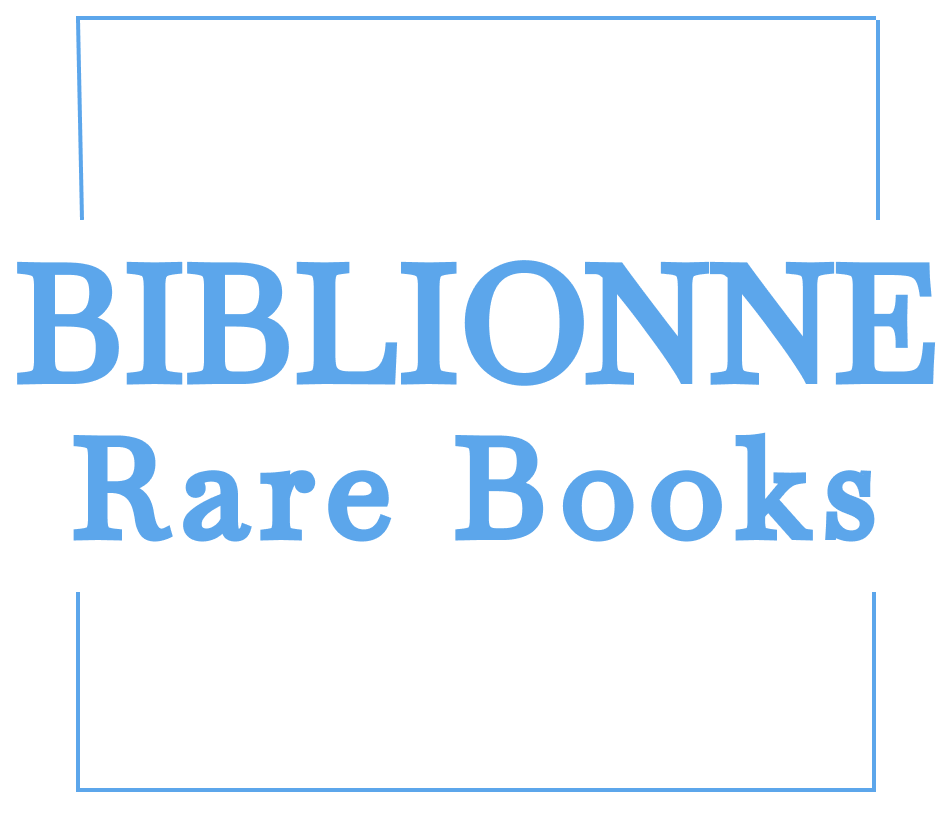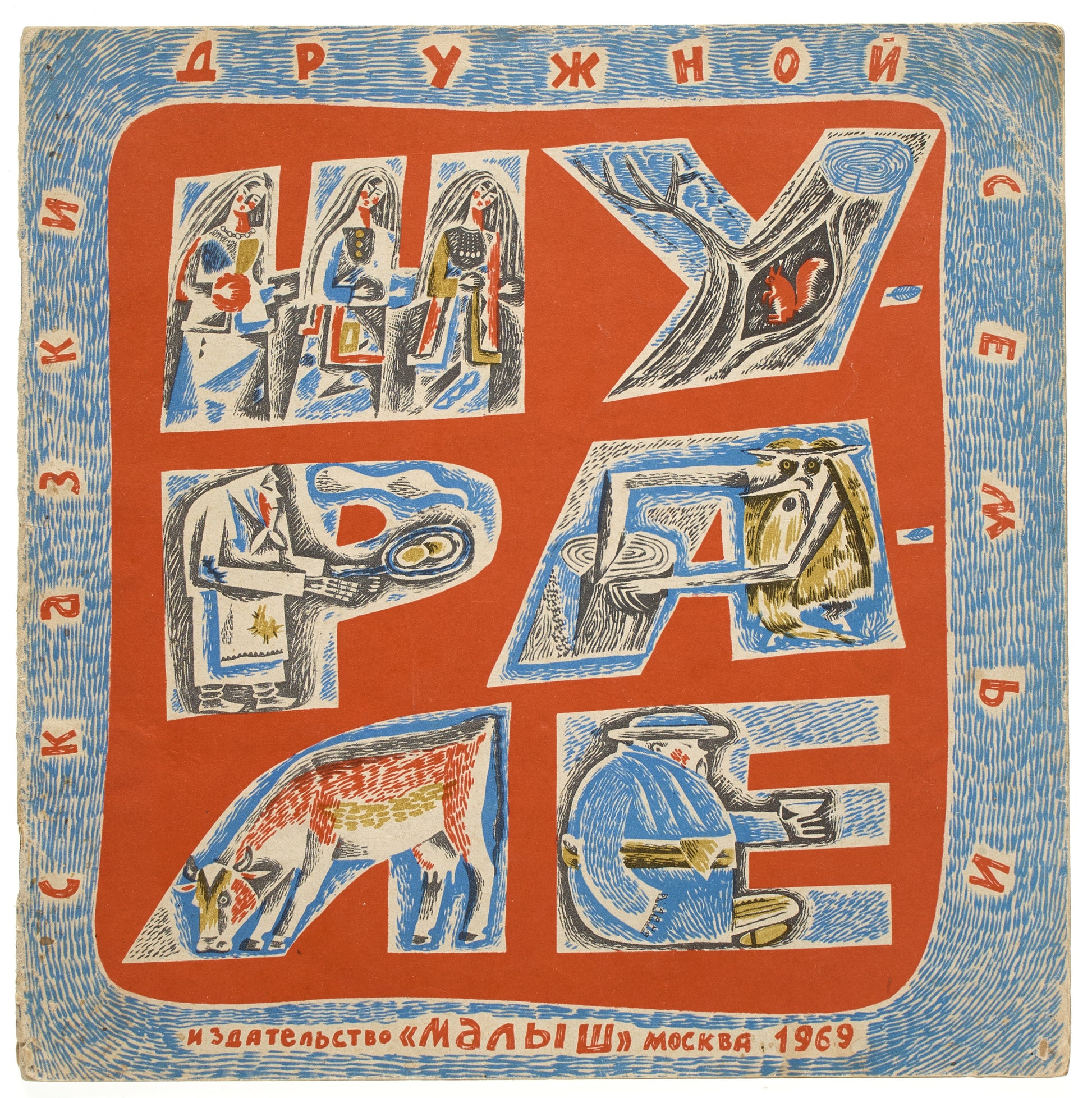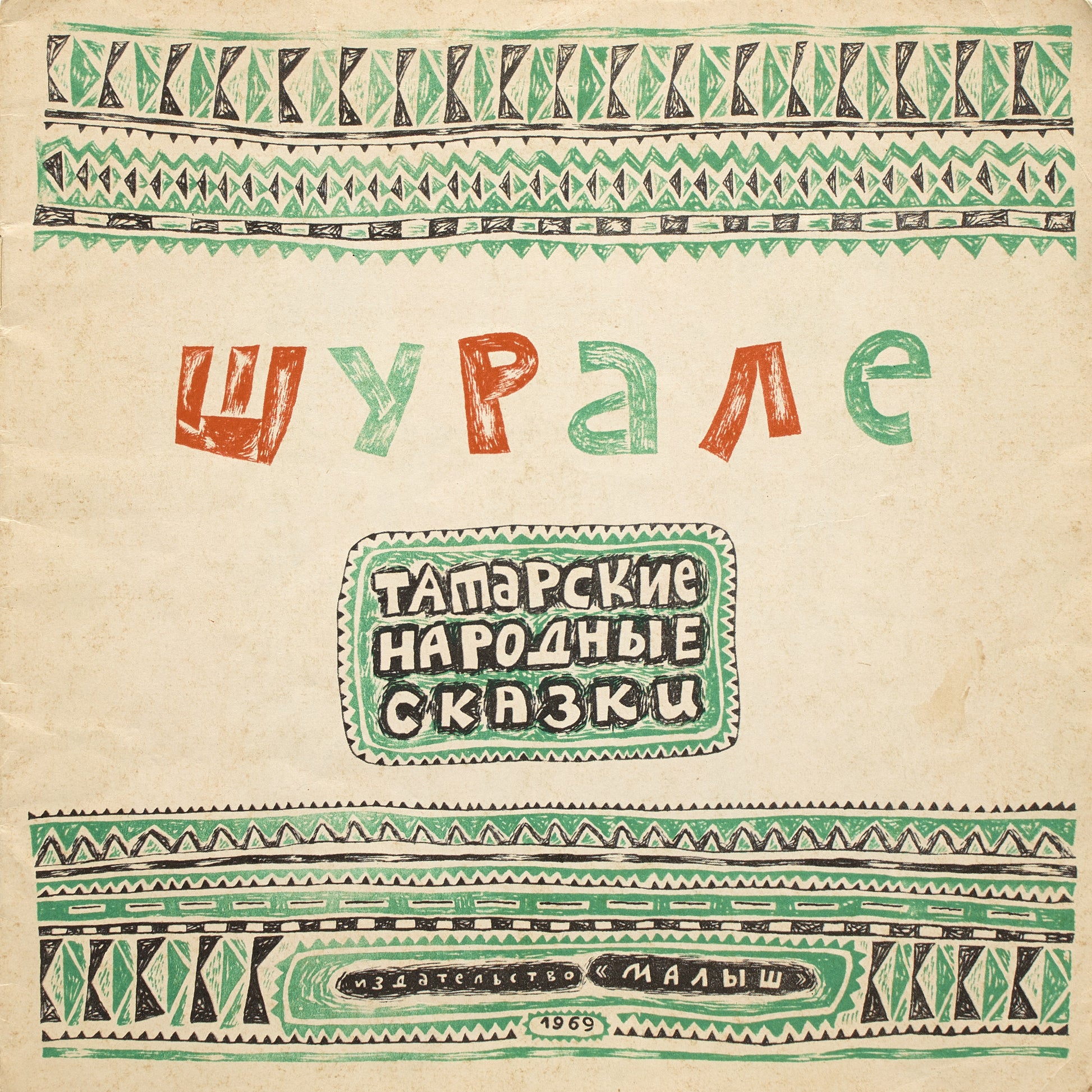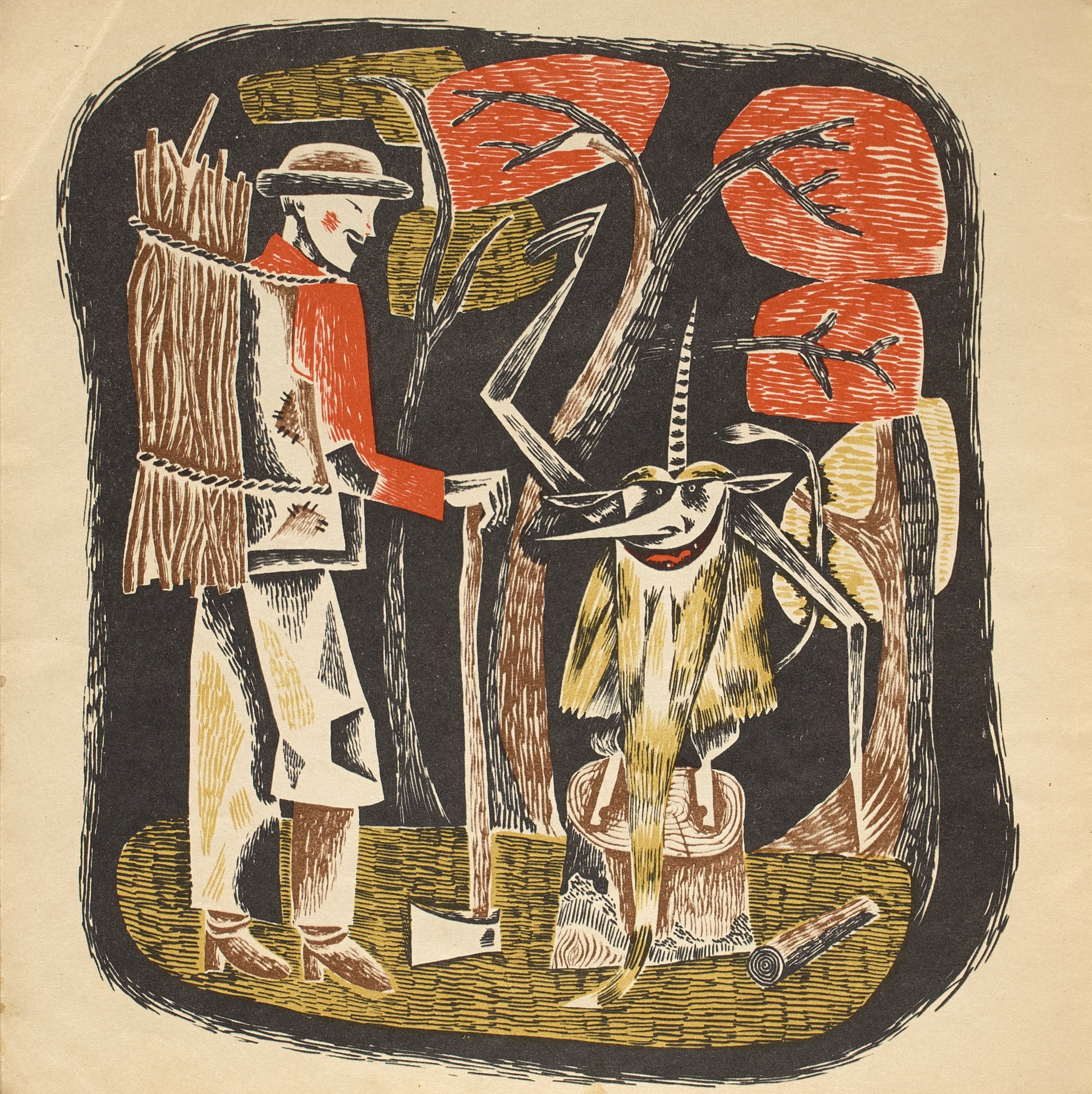Shurale: Tatar Folk Tales. The only edition.
Shurale: Tatar Folk Tales. The only edition.
Couldn't load pickup availability
[Shurale: Tatar Folk Tales]. Shurale: Tatarskie narodnye skazki.
Series Skazki druzhnoi sem’i.
Translation and adaptation by S. Gultiaeva.
Books design and illustrations by M. Romadin.
Moskva, Malysh, 1969.
8vo, [24] pp., ill.
In original pictorial wrappers.
In good condition, light wear to wrappers, rubbing and creasing to corners, spine with short tears, occasional foxing and soling.
The only edition.
This collection of Tatar folk tales takes its name from Shurale, a forest spirit in Bashkir and Tatar mythology, characterized by long fingers, a horn on its forehead, and a woolly body. Befriending Shurale grants a person access to the secrets of magic, but the spirit is also known for luring victims into thickets, where it can tickle them to death. The poem 'Shurale' (1907) by Ğabdulla Tuqay, widely considered the most famous Tatar poem in the thousand-year history of Tatar literature, has been translated into 15 languages.
The book’s design and illustrations were created by Mikhail Romadin (1940–2012), a renowned painter, book illustrator, and artist in both film and theater. In this work, Romadin's illustrations are reminiscent of the avant-garde style of Pavel Filonov, bringing a unique visual interpretation to the collection of Tatar folk tales. A graduate of the Gerasimov Institute of Cinematography, Romadin formed a close friendship with legendary director Andrei Tarkovsky. He notably designed the iconic flying machine made from a sack that appears in Tarkovsky’s film 'Andrei Rublev' (1966). Romadin also served as the production designer and stylist for Tarkovsky’s acclaimed film 'Solaris'(1972). He continued to make significant contributions to cinema, collaborating with another famed director, Andrei Konchalovsky, on several films as a production designer.
OCLC locates two copies of this edition in the USA only: in the University of Notre Dame Library and the Princeton University Library. Two copies are in Germany: in the University of Hamburg Library and the State Library of Berlin.






